
【Traditional Chinese Medicine App】 Online/Offline Reading of Ancient and Modern TCM Books >>>
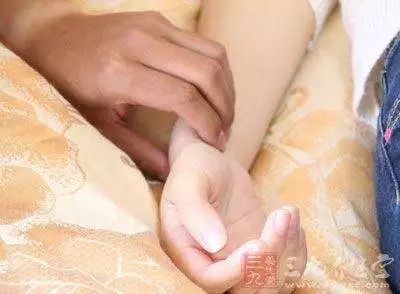
Editor’s Note:How many practitioners of Traditional Chinese Medicine (TCM) today can truly distinguish between the 28 types of pulses and understand their meanings? Each pulse pattern has different meanings depending on the season and location. Listen as Teacher Xu Wenbing explains in detail the differences between the 浮脉 (fú mài, Floating Pulse) and 滑脉 (huá mài, Slippery Pulse), closely linking pulse location, sensation, and bodily conditions, allowing one to appreciate the beauty of TCM.
This was my second speech at the Hainan Yuchan Palace Daoist Health Conference in the spring of the Year of the Rabbit. By the time the conference was nearing its end, at the request of the old Daoist Zhang Zhishun, I explained word by word the 《濒湖脉学 (Binhuh Pulse Studies)》 by Li Shizhen regarding the Floating and Slippery Pulses. At that time, I was wearing a pair of cloth shoes to Yuchan Palace, and it was rainy and humid, so my shoes and socks got wet. I ended up speaking barefoot in slippers. The next day, I bought a pair of Daoist cloth shoes to change into; they were small but much warmer.
First, let me discuss the 《濒湖脉学 (Binhuh Pulse Studies)》 that my master repeatedly emphasized. As I mentioned earlier, you must have energy in your hands; the standard for having energy is that your hands are warm, and then you can feel the patient’s pulse. When feeling the patient’s pulse, you need to be aware of your surroundings because when you pulse, you open your heart to them. If the patient has strong evil qi, it will enter you.
Therefore, when you feel the pulse, sometimes you need to flick your fingers away from them. If you do not pull away, the energy will follow your hand. Thus, you need to have awareness and sensitivity to be a good doctor; this is my personal experience.
Let me give you an example of how Li Shizhen taught us about pulses. The simplest pulse is the 浮脉 (fú mài, Floating Pulse). His verse describes it as follows: “浮脉唯从肉上行,如循榆荚似毛轻。三秋得令知无恙,久病逢之却可惊。” This is his description of the pulse. It seems simple, and everyone recognizes these characters, but you need to imagine and feel its sensation; it indeed requires someone who has felt pulses or understands them to explain it. The Floating Pulse, “唯从肉上行 (only travels above the flesh),” refers to the layers of our body: the outermost is hair, beneath that is skin, and what lies beneath the skin?
It is the dermis. Beneath the dermis is flesh, which we refer to as muscle; beneath the muscle is the pulse, and beneath the pulse is the tendon, and beneath the tendon is the bone, with marrow inside. We will not elaborate further. Thus, when he says it “行于肉上 (travels above the flesh),” it indicates that when you place your hand on the pulse, you can feel it at the level above the middle layer. Therefore, when we feel the pulse, we talk about the gentle touch and slight pressure, as opposed to pressing down to the bone. So, what is the opposite of the Floating Pulse? It is the 沉脉 (chén mài, Deep Pulse). A more severe form than the Deep Pulse is the 伏脉 (fú mài, Hidden Pulse), which can only be felt when touching the bone. The first sensation of the Floating Pulse is that it beats at the level of the flesh.
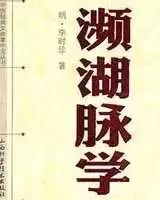
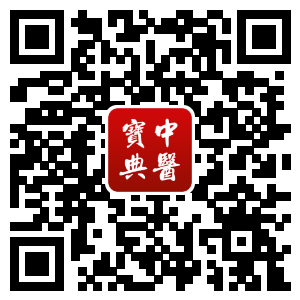
This muscle, everyone refers to as muscle. But what is the difference between muscle and flesh? The Huangdi Neijing (Yellow Emperor’s Classic of Internal Medicine) states that in ancient times, people cultivated their essence and spirit, and “肌肉若一 (the muscle and flesh are one).” If you do not understand qi and spirit, you cannot comprehend the difference between “肌 (jī, muscle)” and “肉 (ròu, flesh)” from a materialistic perspective. However, Daoism emphasizes qi, meaning that muscle and flesh are the same tissue, but when it is tense and firm, it is called muscle, while when it is relaxed, it is called flesh. The distinction lies in whether it has qi or not, right?
Why is it called “肌肉若一 (the muscle and flesh are one)?” It means that when needed, it can tense and exert force, and when relaxed, it can soften. We often say about a person, “You are very fleshy,” meaning they are not exerting themselves. What is the common ailment of people? It is either a lack of qi, being a pile of flesh all day, or overexertion, remaining tense and not relaxing, turning into dead flesh. Such people may boast about their bodybuilding, but they have turned living flesh into dead flesh. Moreover, I tell you, bodybuilders are often weak and susceptible to illness; a slight cold can lead to infection, so their qi is also dead, turning flesh into dead flesh.
Therefore, the Floating Pulse travels at the level above the flesh. Many people have not experienced famine, but some may have eaten 榆钱 (yú qián, elm seeds). What is the sensation of elm seeds? They are thick in the middle and thin on the sides, feeling very elastic but thin. The Floating Pulse feels like touching the feathers of a small bird, very light. What does very light mean? It means that with a slight pressure, it disappears; that is the sensation.
So, what does this pulse represent? It is said that if you feel the Floating Pulse in spring, summer, or autumn, it is not a big deal, just a cold. Why not in winter? In winter, the qi of a person is retracted; it will not be felt unless you go winter swimming or exercise excessively in winter, forcing your yang qi out, which is abnormal. If you feel the Floating Pulse in autumn, it is primarily normal; secondly, it may indicate an external cold. Therefore, feeling the Floating Pulse is not a big deal.
However, when a person has been ill for a long time, regardless of their age, if you feel the pulse is Floating, it indicates a reverse symptom; the yang qi is leaving, and this person is in danger. What is a reverse symptom? The pulse of a long-term illness is weak, either Deep or Hidden, which are called normal symptoms. After a long illness, if the pulse is Floating, you must be cautious; you need to clarify your relationship with the patient’s family, or else this patient may die in your hands. As a doctor, you should be able to assess the prognosis. This is the first poem about the Floating Pulse. Everyone should learn it slowly and memorize it; memorizing it is the best way to communicate with the ancients. If you do not understand, first store it in your mind.
The second poem further describes the characteristics of the Floating Pulse and distinguishes it from other pulses. It states: “浮如木在水中浮 (Floating like wood floating in water).” If you have not touched elm seeds or bird feathers, let me give you another example: a piece of wood floating on water. When you touch it, it sinks; if you press it hard, it disappears. The Floating Pulse is “木在水中浮 (wood floating in water).” The next line states, “浮大中空乃是芤 (Floating, large and hollow is the Kōu Pulse).” When you feel the Floating Pulse, it is not solid wood; it is like a hollow tube floating above. If you press it, it does not disappear; it sinks in. This pulse is no longer called Floating Pulse; we call it 芤脉 (kōu mài, Kōu Pulse).
What does the Kōu Pulse indicate? The Kōu Pulse indicates loss of essence and blood, such as a woman with uterine bleeding, a man with frequent seminal emissions, or someone who has just donated blood, sweated profusely, or had diarrhea, losing their essence and blood. When you feel their pulse, it is the Kōu Pulse. The sensation of the Kōu Pulse is also floating, but it feels empty inside, hence the distinction between the Floating Pulse and the Kōu Pulse.
The next distinction is “拍拍而浮是洪脉 (Pounding and floating is the Hóng Pulse).” Another pulse that is easily confused with the Floating Pulse is the Hóng Pulse. This pulse feels like a flood; its sensation is very pronounced, like waves crashing against the shore. This sensation is no longer the Floating Pulse; it is the Hóng Pulse. What does the Hóng Pulse mean? It means that when you lightly touch it, you can feel it, but when you press it, it still exists; you can feel the up-and-down wave-like sensation. The Hóng Pulse indicates high fever. In the Shanghan Lun (Treatise on Cold Damage), when discussing 白虎汤 (Bai Hu Tang, White Tiger Decoction), it mentions four major symptoms: high fever, profuse sweating, severe thirst, and a large Hóng Pulse, indicating that the heat is no longer superficial but has penetrated inward. When you feel this pulse, do not treat the exterior; it is no longer the Floating Pulse; it is the Hóng Pulse. The Hóng Pulse also has a characteristic: “来时虽盛去悠悠 (Though it comes strong, it leaves gently).” This means that the Hóng Pulse has a characteristic of “tiger head and snake tail,” coming strong but lacking endurance. This indicates that the person’s original qi is almost exhausted from fighting against external evils. This is how Li Shizhen elaborates on the Floating Pulse, clarifying its distinctions from the Kōu Pulse and Hóng Pulse to prevent misjudgment in the future. This is his second poem.
The third poem discusses the 寸关尺 (cùn guān chǐ, Cun-Guān-Chi) measurement. Generally, ordinary people have pulses in all three positions, with the Cun and Guān being normal and the Chǐ being slightly weak. This is considered normal. Those with good cultivation have longer pulses, meaning that the fingers are spread apart, and the Chǐ area is still present; this is called 寸关尺 (Cun-Guān-Chi). Nowadays, with advanced technology, many strange pulses have been discovered. In my clinic, a retired general came to see me. He found me through my program with Liang Dong. When he came, he did not speak but extended his arm, actually testing me. Do not be afraid of being tested by patients. Once you pass the test, the patient’s trust in you will be established from the heart, and you could give them sawdust to eat, and they would be cured. However, many people cannot pass the test because their basic skills are lacking.
When he extended his arm, I felt his pulse; all three positions were present. I spread my fingers and felt the pulse. I said, “Your pulse is quite strange; normally, a long pulse indicates sufficient kidney qi and longevity. However, this pulse is not that of a healthy person; it is not the pulse of a strong body with sufficient kidney qi. Although the pulse is long, the wave amplitude is small, and the pulse beats weakly, and there is a slight arrhythmia.” When there is arrhythmia, the person’s spirit is disturbed. When we feel the pulse, we need to pay attention to two terms: one is heart rhythm, and the other is heart rate. Heart rate is the speed; in ancient times, when feeling the pulse, doctors had to first adjust their breathing, mood, and spirit. One breath equals four beats; one inhale and exhale equals four beats; this is called a normal pulse. If one breath exceeds four, it is called a rapid pulse; if it is three beats, it is called a slow pulse. We first judge the yin and yang based on this.
What is heart rhythm? It is the rhythm of the heartbeat. If there is a problem, it is a big problem. Think about it; our life is a rhythm. Your breathing has a rhythm, your sleep has a rhythm, and your heartbeat has a rhythm. A rhythmic heartbeat is not tiring. Once this rhythm is disturbed, it indicates several situations. The most common situation is that there is another commander inside you. Originally, it was controlled by the spirit, but once it is disturbed, it indicates that your spirit has been disrupted. Therefore, when you see a person with a disordered heart rhythm, the illness is relatively serious. When I felt his pulse, I realized several points: first, this long pulse is false; secondly, you have a serious problem. I told him, “You are very ill; you have heart problems, sleep issues, and emotional problems.” However, I could not explain why your pulse could beat so long. He replied, “Doctor Xu, you are truly skilled.” I asked, “How so?” He said, “I have four stents in my heart.”
Therefore, I want to continue writing the 《濒湖脉学 (Binhuh Pulse Studies)》 and write about the stent pulse and bridge pulse. He had severe heart disease and had initially placed two stents, but later, it was not enough, so he had another procedure at 301, resulting in a total of four stents. Then, upon examining his abdomen, I suggested he undergo a gastroscopy because I sensed that this person’s stomach had serious issues. Why did I say serious? When you feel pain, acidity, or bloating in your stomach, it is often not serious because you are aware of it. This person, during my abdominal examination, had very serious cold-congealed blood clots in his stomach, but he said he could eat anything and had never had stomach issues. I said, “Let’s do the examination.”
He went to 301, where he had his own health doctor. When he mentioned to the Western doctor that he wanted a gastroscopy, the doctor asked, “Why do you want a gastroscopy? Does your stomach hurt?” He replied, “No, it doesn’t hurt.” The doctor said, “If it doesn’t hurt, why do a gastroscopy?” He said, “A silly TCM doctor insisted I do it.” The doctor asked, “You believe in TCM?” He said, “Not really, but that TCM doctor is quite skilled, so I will do it.” The military leaders have special treatment, and now there are painless gastroscopies with anesthesia. After a short nap, he woke up, and when he received the report, his health doctor’s face changed. He had atrophic gastritis, Helicobacter pylori infection, and surrounding lymphoid tissue hyperplasia. The doctor’s face changed because the next step would be a diagnosis of stomach cancer. He said, “I want to meet that TCM doctor; how did he know this?” I said, “Don’t meet me; pay tuition if you want to see me!”
Later, they prescribed many Western medicines to kill Helicobacter pylori and treat the erosion, but I told him not to take any of those medicines. The reason I asked you to do the gastroscopy was to confirm that my diagnosis was correct. Later, we treated his stomach issues and his psychological problems. In fact, he was quite depressed. (High-ranking officials live very painfully; we do not have that fate, so do not pursue it.) After nearly a year of treatment, his insomnia and heart symptoms greatly improved. When he went for another gastroscopy, all these issues had disappeared. Later, he traveled to Russia for a month and then to Egypt, and he had no problems and never experienced heart issues again.
Some people ridicule TCM, saying it relies on three fingers to make a living. I say that being able to simplify complex problems shows our brilliance. Over-reliance on instruments only leads to human degeneration. I have the ability to think abstractly, navigate, and read maps; why should I use GPS?
Let’s take a look at how Li Shizhen explains the Floating Pulse. He states that if the pulse is Floating at the Cun position, it indicates a headache, saying, “寸浮头痛眩生风 (Floating at the Cun indicates headache and dizziness caused by wind).” If you feel the Floating Pulse, especially pronounced at the Cun position, you can boldly ask, “Are you currently experiencing a headache? Do you often see flying spots in your vision?” The word “眩 (xuàn)” means dizziness.
Yes, dizziness means the vision goes dark. However, we often confuse dizziness with lightheadedness; 晕 (yūn) means spinning, while 眩 (xuàn) means darkening of vision. This includes when a person suddenly stands up, and their vision goes dark; this is called dizziness. “生风 (shēng fēng)” means the wind is active; wind is a yang evil, which opens and leaks, and its nature is to move and change frequently.
If you find a Floating Pulse at the Cun position, you can boldly infer a series of symptoms, including eyelid twitching or involuntary facial spasms. When the patient does not speak, and you mention these symptoms, if you mention three and hit one, the patient’s trust in you will be established. This is the manifestation at the Cun position. The second sentence reminds me of something the old Daoist said last time, which I want to share with everyone: “What you memorize until your spirit knows, you will never forget in your life. This is much more profound than the Western saying that repetition is the mother of memory.” If you repeat it ten thousand times, but your spirit does not know, it is useless.
The second sentence states, “或有风痰聚在胸 (There may be phlegm and wind gathering in the chest).” Besides inferring headaches, eyelid twitching, and facial spasms from the Cun pulse, it can also indicate that after being exposed to wind, it has frozen, causing phlegm to block the throat. Many people exhibit such symptoms, saying, “I have chronic pharyngitis; I always have phlegm stuck in my throat,” or some say they have a sensation of a lump in their throat, unable to swallow or spit it out. Others may say, “My chest feels tight.” This inference is based on the examination of their observation, listening, questioning, and pulse diagnosis. The purpose of this diagnosis is for treatment. The final treatment for such a condition is to open and expel, and it will resolve quickly because the evil is on the surface. We often say to open the door and expel the bandits. You can either use purging methods or dispersing methods, depending on where the disease mechanism lies.
If the pulse feels Floating at the Guān position, it indicates “关上脾虚肝气旺 (Guān indicates spleen deficiency and liver qi excess) (Earth weak and Wood strong).” Many people have a more pronounced pulse at the middle position, which we call Guān. The Guān corresponds to the left liver and right spleen. If a Floating Pulse appears here, you can generally infer that the liver, which is associated with wind, is overactive. The liver is called 厥阴风木 (jué yīn fēng mù, Jueyin Wind Wood), and when it is overactive, it weakens its lower counterpart, leading to spleen deficiency. This pulse is particularly pronounced in spring. When the liver qi surges, it can cause headaches, dizziness, and generate wind. If it encounters phlegm or fluid, it may surge upward and become trapped in the chest, manifesting as emotional instability, irritability, and poor appetite. When feeling this pulse, you must ask, “When did you last eat?” because some people may have a pronounced Guān pulse just after eating. If they come to see you less than half an hour after eating, and you feel a Floating Pulse at the Guān position, you should ask, “Did you get angry?” If they say no, it may be due to having just eaten.
The final sentence states, “尺中溲便不流通 (The Chǐ pulse is not flowing).” I memorized the 《濒湖脉学 (Binhuh Pulse Studies)》 when I was six years old, taught by my mother. At that time, I did not understand it. I just memorized it. In college, while others were still learning diagnosis, I had memorized it thoroughly. However, my understanding of these words deepened gradually through clinical practice, and I began to appreciate the meaning behind the writing. This particular sentence guides me now in treating so-called kidney diseases, nephritis, proteinuria, and hematuria, which is the key sentence. Why? Because the Chǐ pulse in a normal person is deep and hidden, which is a characteristic of kidney qi. When it becomes Floating, you must consider what has entered; what has entered has disturbed our kidneys. After this disturbance, it will lead to problems, such as hematuria. Some people experience hematuria after excessive fatigue. Others may have hematuria after a cold, which does not affect the heart but affects the kidneys. Some feel tired, but visually, the urine color does not change; when they go to the hospital for a test, they find red and white blood cells in the urine. This condition starts as hematuria and quickly progresses to urinary retention. In TCM, we refer to this as 风水 (fēng shuǐ, Wind Water). This is not about feng shui; it refers to the flow of water and liquid being obstructed after being affected by wind.
How to treat this Wind Water? TCM has a vivid metaphor: “提壶揭盖 (lifting the teapot lid).” When a teapot cannot pour out water, you should consider whether the spout is blocked. Once you open the spout, the water will flow out. Therefore, for this condition, which is caused by external factors leading to urinary retention, do not treat the kidneys; the kidneys are merely the victims. What should you do? You need to clear the lungs. By clearing the lungs, it is like opening the spout of the teapot; once the vital energy enters, the pressure will naturally lead to urination.
So, how do you determine whether the urinary retention is due to internal injury from overexertion or external factors? You do it by feeling the pulse. Li Shizhen tells you that if the Chǐ pulse is Floating, it indicates that the original qi has been disturbed. In a normal person, the original qi is hidden and not exposed. Additionally, you need to verify this through observation, listening, questioning, and pulse diagnosis, including checking other body parts and acupoints. Such individuals often have a characteristic: after the external evil has harmed the kidneys, when you feel around their navel, there will be pulsations. Normal people also have a pulse; the aorta is also beating, but that energy does not reach the surface. However, once the kidney qi is disturbed, when you feel around the navel, there will be pulsations. You need to help the kidneys expel the external evil. If there is no external evil, you need to use a large amount of 人参 (rén shēn, ginseng) to help it recover.
This is what our master repeatedly emphasized for everyone to memorize from the 《濒湖脉学 (Binhuh Pulse Studies)》. Therefore, I say that memorizing it is equivalent to directly transplanting the thoughts of the ancients into your mind. When you memorize it, you may not understand it, but as you apply it in clinical practice, the more you use it, the more interesting it becomes, and the more you experience the greatness of our ancestors. Does anyone have any questions? Master, do you want to ask? I’m a bit scared. Haha… Master, don’t ask; let me continue speaking? Haha… Or should I finish my thoughts first…
Daoist Zhang: Do not stop. I want to emphasize that you must memorize the pulse studies (《频湖脉学 (Binhuh Pulse Studies)》), and you must memorize them thoroughly. You must also understand the principles of pulse studies, the changes, and the characteristics; if you do not understand, you are deceiving yourself. Therefore, I emphasize that you must understand the pulse and the properties of herbs; only then can you be a true TCM practitioner; otherwise, you are not a true TCM practitioner, but rather a deceiver.
Xu Wenbing: Let me talk about another pulse. There are a total of twenty-seven pulses. The common pulse is the 滑脉 (huá mài, Slippery Pulse). Remember the verse: “滑脉如珠替替然,往来流利却还前 (The Slippery Pulse is like beads rolling, flowing back and forth smoothly). The Slippery Pulse is a common pulse. Its characteristic is summed up in one sentence: “如盘走珠 (like beads rolling on a plate).” We have all learned Bai Juyi’s poem “琵琶行 (Pipa Xing, Song of the Lute)”: “大珠小珠落玉盘 (big beads and small beads fall on the jade plate).” The Slippery Pulse is characterized by being like small round beads. Why is it called small round beads? Because the pulse opposite to the Slippery Pulse is the 涩脉 (sè mài, Sè Pulse), which feels like a rasp. You know what a rasp is, right? It is used to smooth wood, and it has small sharp teeth, so it does not feel smooth. The Slippery Pulse feels like beads; it is not a straight line because these beads have a radius and diameter, making it wide. This distinguishes it from the 细脉 (xì mài, Thin Pulse) and 弦脉 (xián mài, String Pulse). The String Pulse feels like a taut bowstring; if you feel that taut sensation, you would not think it is Slippery. Therefore, I find it amusing that modern TCM practitioners write in medical records that the pulse is “string and slippery.” I ask you, is it string or slippery? They do not even understand.
Let me share a true story: my university classmate became a doctor after graduation. He did not believe in TCM because his teacher did not teach him well. Therefore, he practiced TCM without believing in it, but he still had to feel pulses and treat patients. What did he do? When the patient extended their left hand, he would touch it and silently recite: “床前明月光 (The bright moon shines before my bed),疑是地上霜 (I suspect it is frost on the ground).” He would recite this for the left hand, and for the right hand, he would recite: “锄禾日当午 (Hoeing rice at noon),汗滴禾下土 (Sweat drips onto the soil). Who knows the food on the plate, every grain is hard-earned.” Then he would say, “The pulse is slippery or stringy.” Is this interesting? I think some things, you can deceive others, but you cannot deceive yourself, right?
The reason TCM can treat and save lives is that it understands the laws of change in nature and the human body. When you apply this law to a case, “啪,” it works! It resonates! That feeling is something that no one else can replace. The sensation of “滑脉如珠 (Slippery Pulse is like beads)”—if you do not understand, think of your wife’s pearl necklace; if it becomes loose, you touch it. What does “替替然 (rolling smoothly)” mean? It means that it is continuous, one after another, without interruption.
The next line states, “往来流利却还前 (Flowing back and forth smoothly).” “却还前” means that it is like a ring without end. Therefore, it has two characteristics: one is “如盘走珠 (like beads rolling on a plate),” and the other is “如环无端 (like a ring without end),” having no end. However, many people confuse the Slippery Pulse with the Rapid Pulse because it flows smoothly, and they think it beats quickly. Remember, objective existence and subjective feeling are different. Some people feel their heart is racing, but when you feel their pulse, check their heart rate, and do an ECG, their heart rate is normal. That kind of anxiety is another explanation. Therefore, when you feel the Slippery Pulse, you can generally determine it is a phlegm condition. Sometimes, the Slippery Pulse may also indicate overeating, as I mentioned earlier; if you feel the Guān pulse is particularly Slippery shortly after eating, it is due to overeating. This is a condition caused by eating too much, especially in modern times when people tend to overeat, particularly at dinner. Therefore, among ten people, eight have Slippery Pulses, and the remaining two have Sè Pulses; there are basically no normal people. This is the main condition of the Slippery Pulse.
Additionally, with some auxiliary examinations, you can check their tongue coating and body type. Interestingly, there are many pseudo-TCM practitioners nowadays. Of course, when the tongue coating is enlarged, those educated in TCM say this person has spleen deficiency. What does deficiency mean? I have said that deficiency means what should be there is not there, while excess means what should not be there is present. Therefore, when the tongue is so swollen, is it because what should be there is missing? No, it is due to over-nutrition; it has what should not be there. Therefore, such individuals often have enlarged tongues with teeth marks, and when they have phlegm, they often have fluid. When they eat, if they stick out their tongue, it drips like a dog. Therefore, by combining these symptoms and observing the thickness of their tongue coating, you can generally ask related questions. Do you feel nauseous when you smell greasy food? Do you eat dinner very late? Do you wake up in the morning and feel dry heaving? Why do you feel dry heaving? It is the body’s self-protection mechanism saying, “You ate too much; hurry up and vomit it out.” Why does a slight stimulus make them want to vomit? Nowadays, we ignore these signals from our bodies and even suppress them.
Therefore, when the Slippery Pulse appears at the Cun position, you should ask if they are prone to nausea or vomiting. If you feel the Slippery Pulse at the Chǐ position, there are two possibilities: the first is amenorrhea; the second is a false pregnancy.
We say that following the master’s teachings can transform essence into qi and make wishes come true. Some people think they can conceive just by thinking about it; they go crazy thinking about it, and suddenly they miss their period, and their belly swells. They may even experience morning sickness. “Oh, I must be pregnant.” However, when they undergo a B ultrasound, it turns out to be a molar pregnancy or a blood clot; this is called a false pregnancy. When you feel their pulse, it is also Slippery. Therefore, when you feel the Slippery Pulse at the Chǐ position, you need to analyze two situations: one is amenorrhea, and the other is a false pregnancy. What is the characteristic of a pregnant pulse? It is harmonious; the pulse cannot be described. If someone is pregnant, you can feel their pulse. During pregnancy, a person’s original qi is at its peak; many people with severe illnesses improve during pregnancy because they borrow the vitality of the child. Therefore, the pulse is harmonious, completely different from the pulse of someone with a false pregnancy. However, you can also use modern technology.
In the afternoon, we discussed that the longer a driver drives, the more careful they become. The longer a doctor practices, the more careful they become. I have not done any unethical things over the years, which is reflected in not having performed abortions. Many people come to me asking how to have an abortion. I tell them, “If you want to have a child, come to me; if you want an abortion, go find someone else.” Another form of unintentional wrongdoing is unintentionally causing an abortion. In the novel 红楼梦 (Dream of the Red Chamber), the quack doctor Hu Yong used tiger and wolf medicine to cause Liu Erjie’s pregnancy to terminate. This means that when you feel the pulse and do not pay attention, and you use a large amount of blood-activating and stasis-removing medicine, and since I usually treat patients with acupuncture, you may inadvertently cause a miscarriage. Sun Simiao was able to revive the dead; if you do not make a judgment, you may end up killing a living person. Therefore, many people take these medicines, and suddenly their pregnancy ends. Therefore, when you encounter such cases, you must be very careful. If you are uncertain, let them take a urine test, and when examining gynecological issues, you must ask about their menstrual history. After asking for a long time and performing observation, listening, questioning, and then feeling the pulse, it is bound to lead to major issues. I have had two patients who, after urine tests, said they were fine, but I still felt something was off, so I told them to get a blood test, and it confirmed they were pregnant. Ah, therefore, when you encounter such pulses, you must be cautious. That’s all I have to say.
Source: A Brief Explanation of Floating Pulse and Slippery Pulse in “Binhuh Pulse Studies” – Second Part of Speech at Yuchan Palace by Xu Wenbing on Sina Blog.
The above content is for reference only; if you have any physical discomfort, please go to a regular hospital for treatment.
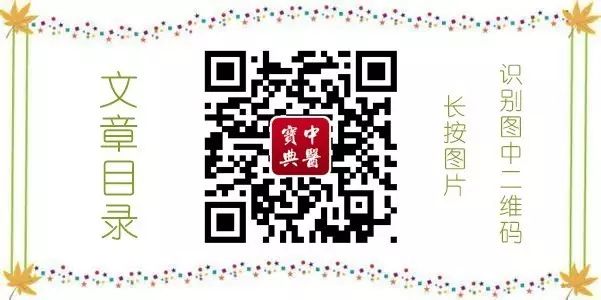
《爷孙俩的中医故事》Every person can understand TCM ★★★★★
Comprehensive Guide to Acupuncture Points【Illustrated Version】
-
Comprehending the Essence of TCM from Ancient Wisdom★★★
-
Mr. Hu Xishu’s Summary of the Shanghan Lun (Treatise on Cold Damage) Research
-
Four Seasons Kidney Nourishment
-
Insomnia, Dysmenorrhea, Facial Swelling, Melasma… These minor ailments can be resolved at home!
-
Health Exercises on the Tip of the Tongue★
-
Autumn Haze – Preparing Meals to Cope
-
The Health Switch is Hidden in the Body; These Acupoints Have Powerful Functions!
-
Beautiful Ancient Poems about Meridians and Acupoints★
-
How Much Should Traditional Chinese Medicine Be Dosed? This Article is Enough★★★★★
-
Discussing the Residual Cough After a Child’s Cold: Roasted Orange and Pear with Chuan Bei★★
-
Women Who Drink 四物汤 (Sì Wù Tāng, Four Substance Decoction) Do Not Need to Do Beauty Treatments!
★★★
-
Dry Lips and Licking: Is This What You Want?
-
Be Cautious of “Edema” Symptoms
-
External Treatment with Medicinal Wax Therapy
-
There is a Great Deal of Knowledge in Supplementing Sleep
-
Miscarriage and Maintaining Pregnancy
-
Four Bad Habits of Women That Harm the Cervical Spine; Long Hair Can Also Induce Cervical Disease★★★
-
Excessively Light Diet is a Major Cause of High Incidence of Dementia in the Elderly★★
-
A Journey with the Huangdi Neijing (Yellow Emperor’s Classic of Internal Medicine) – Classics, Do You Understand?
★★
-
Soaking Feet is the Best for Kidney Nourishment; Timing Matters. Those with Cold Hands and Feet Must Read!
★★★
-
Do Not Rush to Stop a Child’s Cough
-
Which Illnesses to See TCM For and Which to See Western Medicine For – A Clear Overview
-
Minor Ailments and Simple Remedies
-
Massage the Four Major Acupoints of the Upper Limbs to Promote Longevity
- Blindly Following “Food Supplements” is Not Advisable; Medicine and Food Share the Same Source but Are Different Streams!★
- How to Assess the Health of the Spleen and Stomach from Facial Features?
- Discussing Which Medicines Pregnant Women Cannot Use and How TCM is Losing Its Heritage
- By Smelling, You Can Know Whether You Are Healthy!
- Why Are So Many People Aging Prematurely and Dying Young?
- Providing “Nutrients” for the Soul
- Understanding and Treating Cold Hands and Feet in TCM★★★
- Constitutional Health – Special Constitution★★★
- Constitutional Health – Yang Deficiency Constitution★★★
- Constitutional Health – Yin Deficiency Constitution★★★
- Constitutional Health – Phlegm-Damp Constitution★★★
- Constitutional Health – Damp-Heat Constitution★★★
- Constitutional Health – Blood Stasis Constitution★★★
- Constitutional Health – Qi Stagnation Constitution★★★
- Constitutional Health – Balanced Constitution★★★
- Constitutional Health – Qi Deficiency Constitution★★★
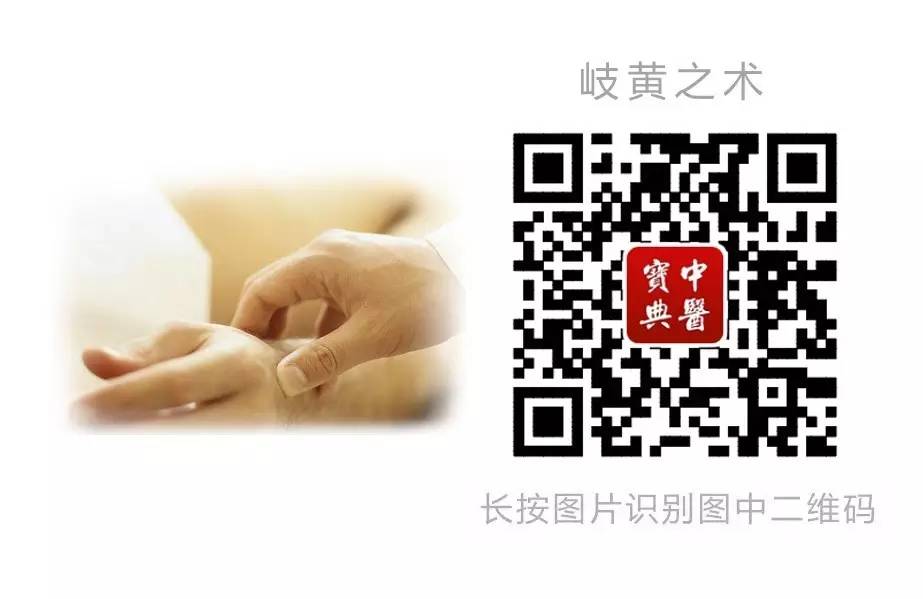
-
Knowledge of Chinese Medicine Processing
-
Traditional Chinese Medicine Treatment Methods
-
Knowledge of Chinese Herbal Medicine
-
Basic Theoretical Knowledge of Chinese Medicine
-
【TCM Treasure】Article Summary for October 2017
-
【TCM Treasure】Article Summary for September 2017
-
【TCM Treasure】Article Summary for August 2017
-
【TCM Treasure】Article Summary for July 2017
Welcome to follow us on WeChat:

TCM Treasure WeChat ID zhongyidaxue


